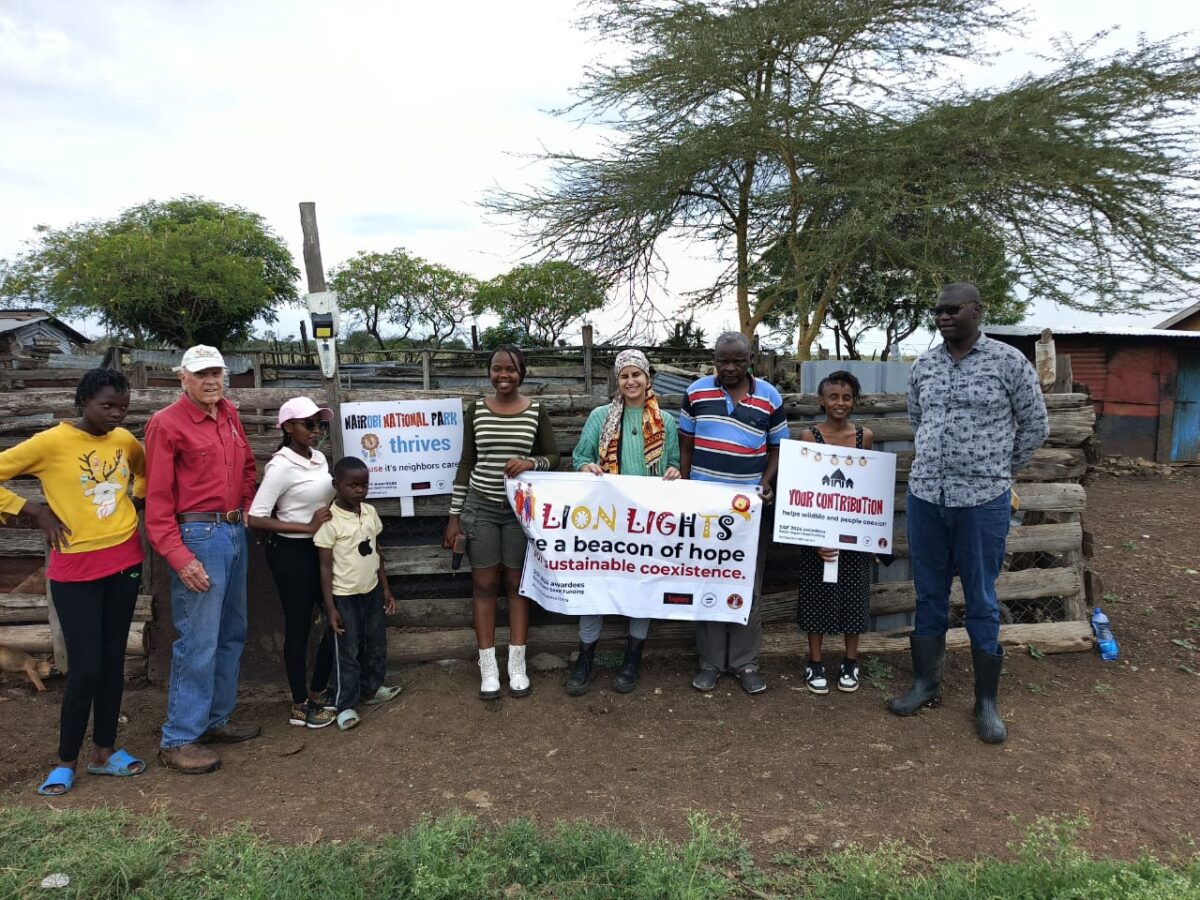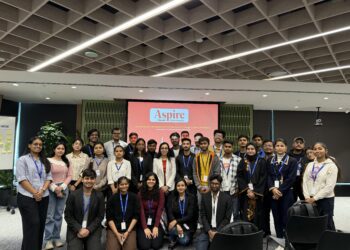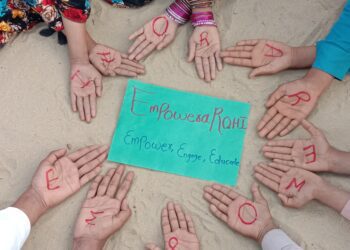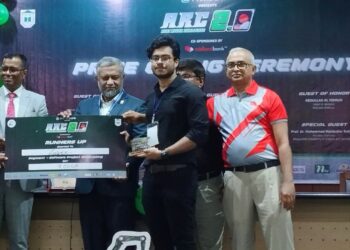For Evelyn Karuma (ALP ‘24 and 2024 SISF Awardee), conservation is about building harmony between people and nature. As a young conservationist and Friends of Nairobi National Park (FoNNaP) student member since 2021, Evelyn has long admired the delicate balance of “The World’s Only Wildlife Capital.” That passion has now transformed into action through her initiative: a youth-led effort to reduce human-wildlife conflict in the communities bordering Nairobi National Park.
Her solution? A deceptively simple but remarkably effective technology known as “Lion Lights”. These are solar-powered flashing lights installed around livestock enclosures to deter nocturnal predators like lions and hyenas. By keeping livestock safe at night, these systems offer a lifeline to local herders while protecting Kenya’s iconic wildlife from retaliatory killings.
A Youth-Led Vision for Coexistence

Inspired by the urgent need to prevent predator attacks, especially amid worsening climate impacts, Evelyn and her team launched the project with the goal of promoting peaceful coexistence between local communities and wildlife. In December 2024, with support from Aspire Institute, they installed Lion Lights at two vulnerable homesteads in the Naretunoi Conservancy, a region often at the frontline of human-wildlife tension.
“The attacks stopped the day the lights went up,” Evelyn shared, reflecting on how grateful community members were to sleep peacefully at night once again. For the local Maasai families, this wasn’t just a technical fix, it was a restoration of safety, stability, and trust.
Mapping Progress, One Light at a Time
Since the installations, Evelyn has taken the initiative even further. In early 2025, she and her team began creating a digital story map using ESRI technology, a powerful visualization tool to track which Lion Lights remain functional and which require maintenance. This voluntary project has involved field assessments, GPS mapping, and conversations with community members to document each light’s current status. You can check out her digital story map at this link.
The digital story map makes it easier for conservationists, partners, and local leaders to monitor and support ongoing maintenance efforts. By identifying issues such as wear from the elements early, the team ensures that the project’s impact remains strong and long-lasting.
What makes this project especially powerful is its deep engagement with the local Maasai community. The team didn’t just bring in an outside solution, they listened, collaborated, and built relationships rooted in respect and shared purpose. As a result, the initiative has fostered stronger bonds between conservationists and the people who live closest to Kenya’s wildlife.
Through her work with FoNNaP, Evelyn has also connected with other conservation partners eager to expand the project’s reach. What began with two homesteads now has the potential to grow into a regional movement.
Fueling the Future of Conservation

Aspire Institute’s SISF program played a pivotal role, supporting not only the procurement and installation of the Lion Lights but also transportation and logistics for the young team behind the effort. For Evelyn, the support was more than just financial, it was a vote of confidence. The SISF program offers crucial initial funding to ALP graduates with visionary ideas for community transformation (just like Evelyn). By providing seed capital, Aspire Institute looks to empower innovators to convert their concepts into tangible projects that address local needs.
Nairobi National Park thrives because it’s neighbors care.
“It reinforced the belief that we are the change-makers and leaders of today,” she said. And that belief has fueled even more ambition. The team is already planning to expand to new homesteads and conservancies facing similar challenges; while strengthening partnerships with conservation organizations to ensure long-term sustainability.
By combining traditional knowledge, modern tools, and a deep commitment to coexistence, Evelyn is helping write a new story for the ecosystems around Nairobi National Park—one where people and predators don’t just survive together, but thrive. As she puts it best, “Nairobi National Park thrives because it’s neighbors care.”



